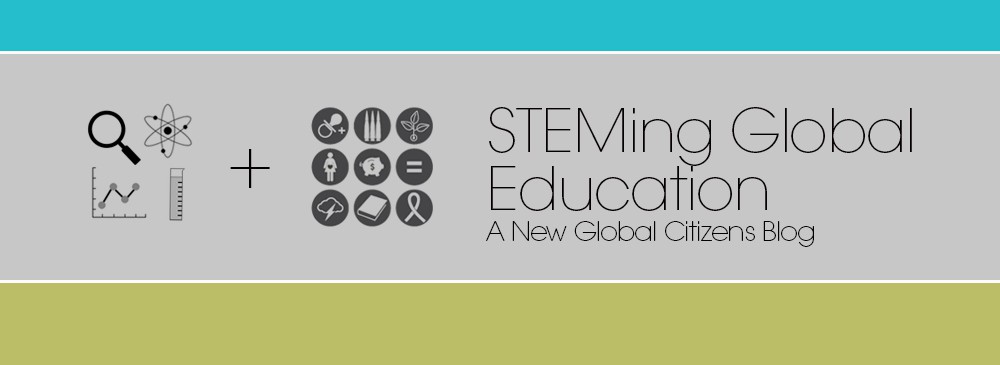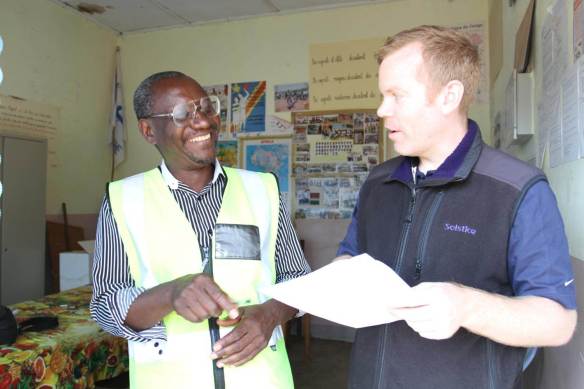About the blogger – My name is Matthew Stroud and I am in charge of the Communications Department at Tenke Fungurume Mining, an affiliate of Freeport-McMoRan Copper & Gold. The Communications Department aims to promote the company to both employees and an outside audience, such as the media and the local community. In many ways our work is somewhat similar to a newspaper or TV show, in that we have reporters, writers and editors who are constantly on the lookout for new stories in order to relay news to our employees, the community and the media.
During my last trip to the Democratic Republic of Congo (DRC), I had the opportunity to visit a school near our mining operations in Katanga Province. For our company newspaper we have a team of reporters who cover events in the community on a daily basis. On July 4th, they asked me to come along to meet a group of teachers who were giving high school admissions tests to about 75 sixth grade students. The test would last about four hours and would determine which fortunate students would be selected to attend a prestigious high school called Mutoshi Technical Institute in the town of Kolwezi, about a two hour drive from where they lived. Mutoshi is a boarding school and has a history of producing many of the country’s future engineers.
Together with the team of high school teachers who would be administering the exam, we waited about an hour for the school bus to arrive. It was early morning and we stood in the dusty school yard as chickens raced back and forth. The teachers became impatient when the bus driver called to say he had made a wrong turn and would be about 30 minutes late. This day was decisive for the students and their families because those who passed the test would receive a full scholarship to Mutoshi and the chance for a brighter future. One of the teachers explained to me the challenges these students had to overcome, saying that to understand the importance of this day, it was also necessary to describe the education system in the DRC and a little bit of history.
As a former Belgian colony, many of the DRC’s institutions are similar to that of Belgium. This is the case for education. Primary education goes from the ages of six to twelve years old and is both free and compulsory. Students must then pass a test in order to go on to high school, as is the case for those applying for Mutoshi. High School or secondary school as it is called, lasts another six years and culminates in another exam. Passing this exam allows students to go on to university.
In a country with a population of over 71 million people where there are 700 languages and dialects, four national languages (Lingala, Kikongo, Tshiluba, Swahili) and over 250 ethnic groups, French is the language of instruction in schools and the ability to express oneself well in this language is the sign of a good education. The DRC has suffered from decades of civil war which has left millions of families displaced and children orphaned. During the years of conflict in the DRC many social services, including education had been slowed or even stopped. The result is that schools are not organized by the government; instead they are run by various missionaries, religious associations or international organizations who have taken over day to day education.
*To be continued…

